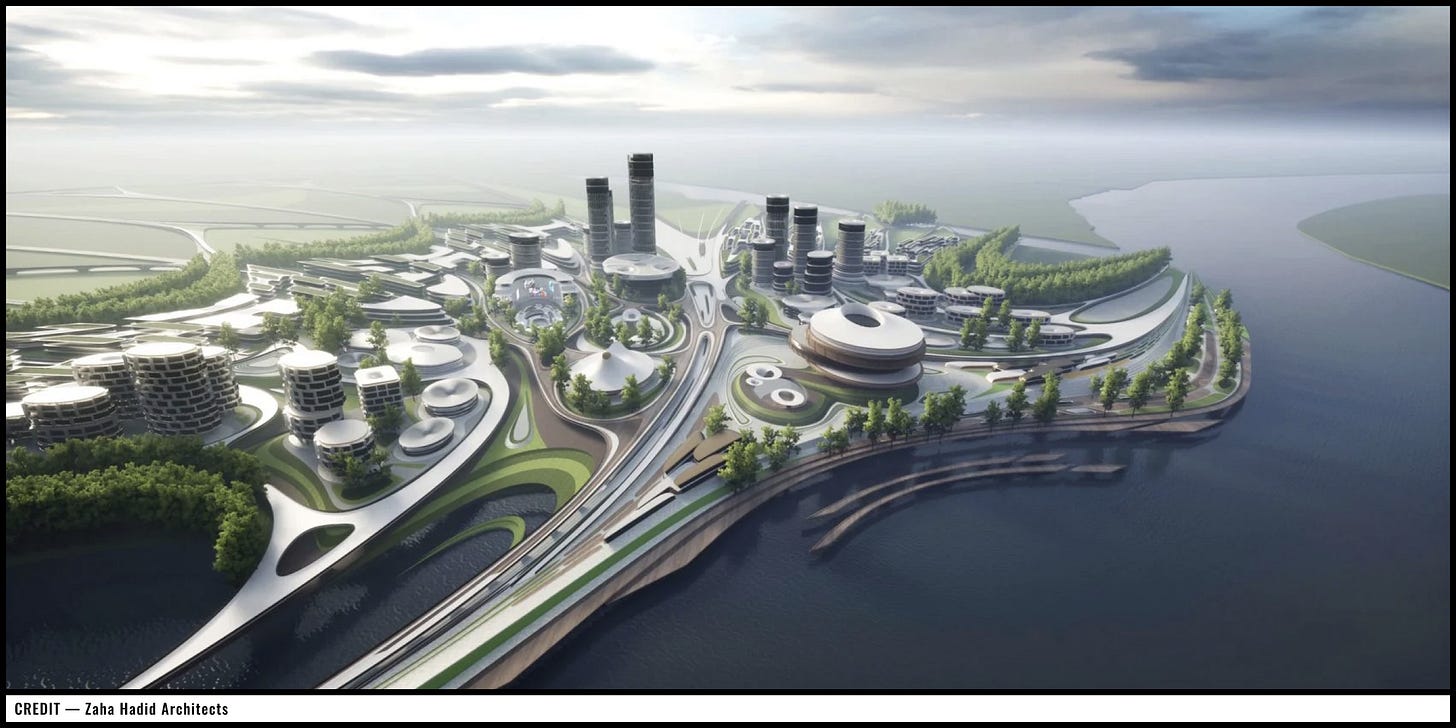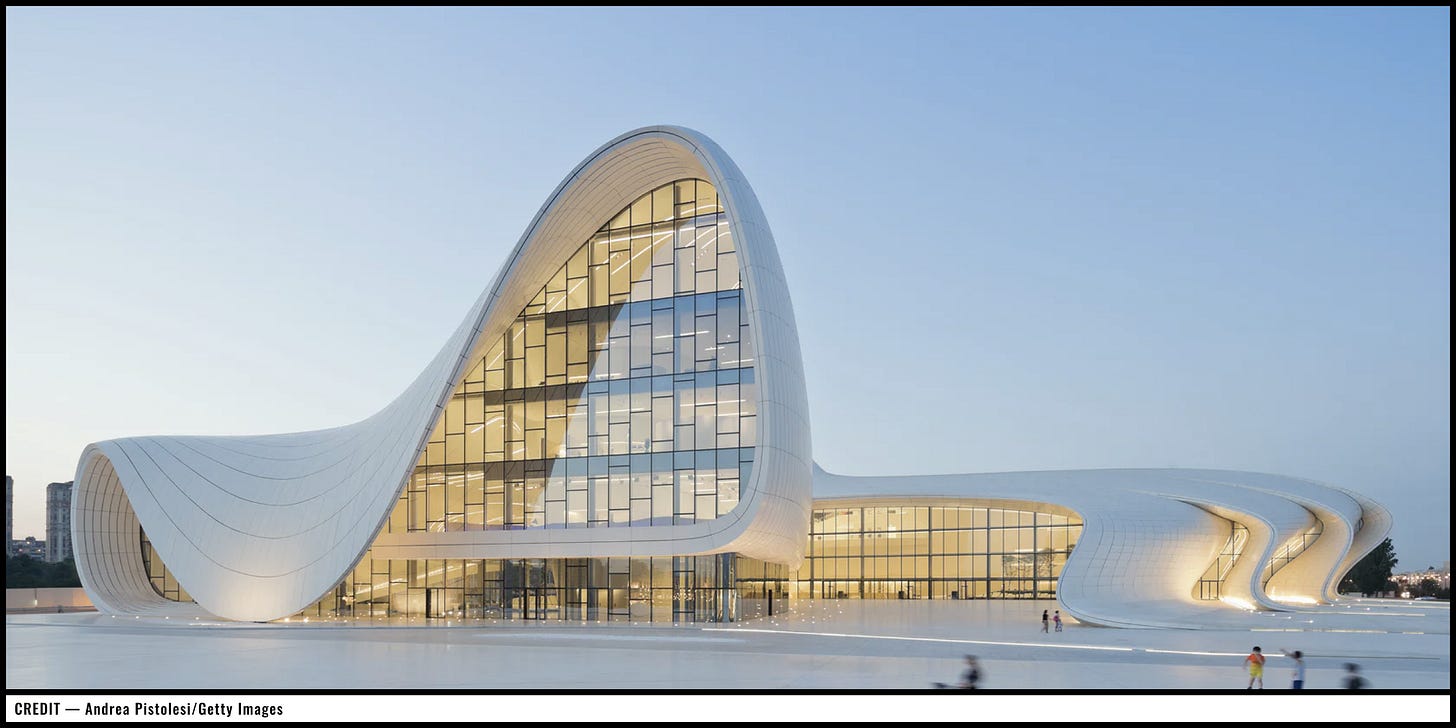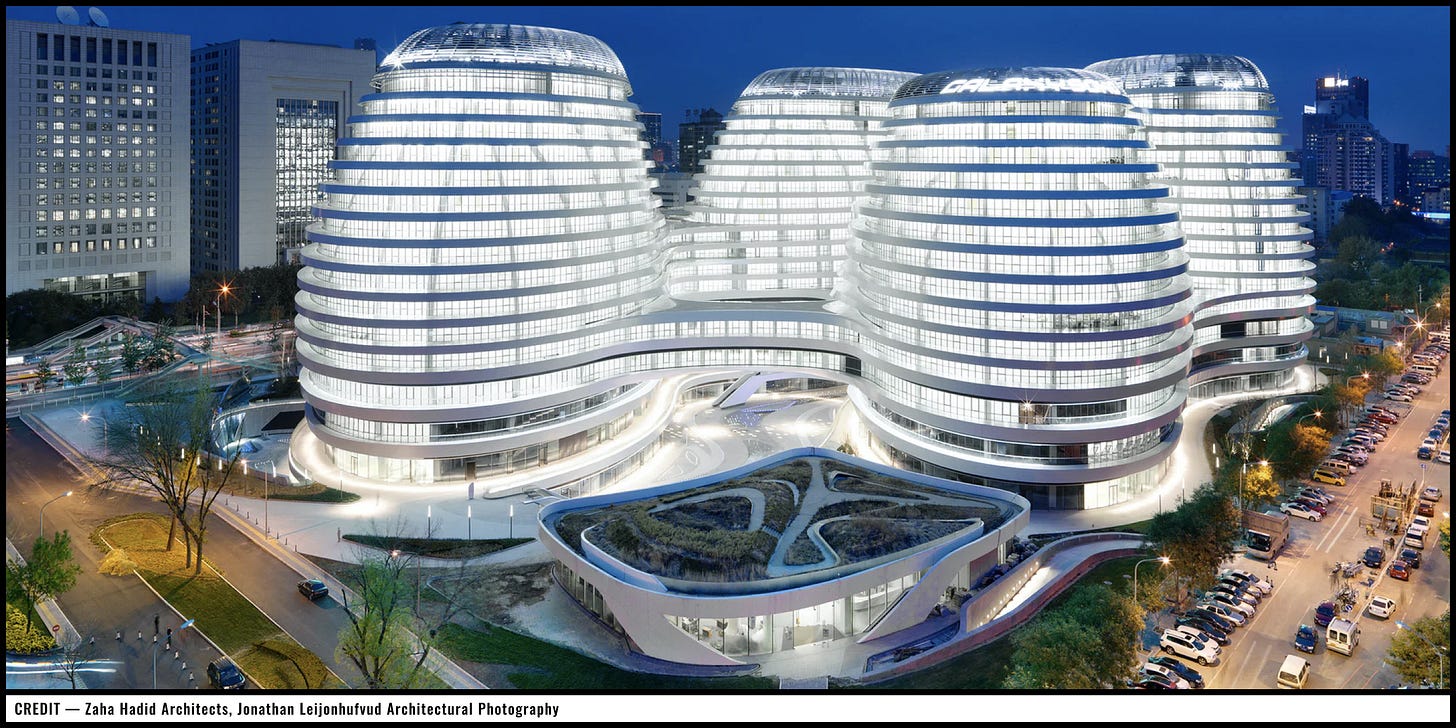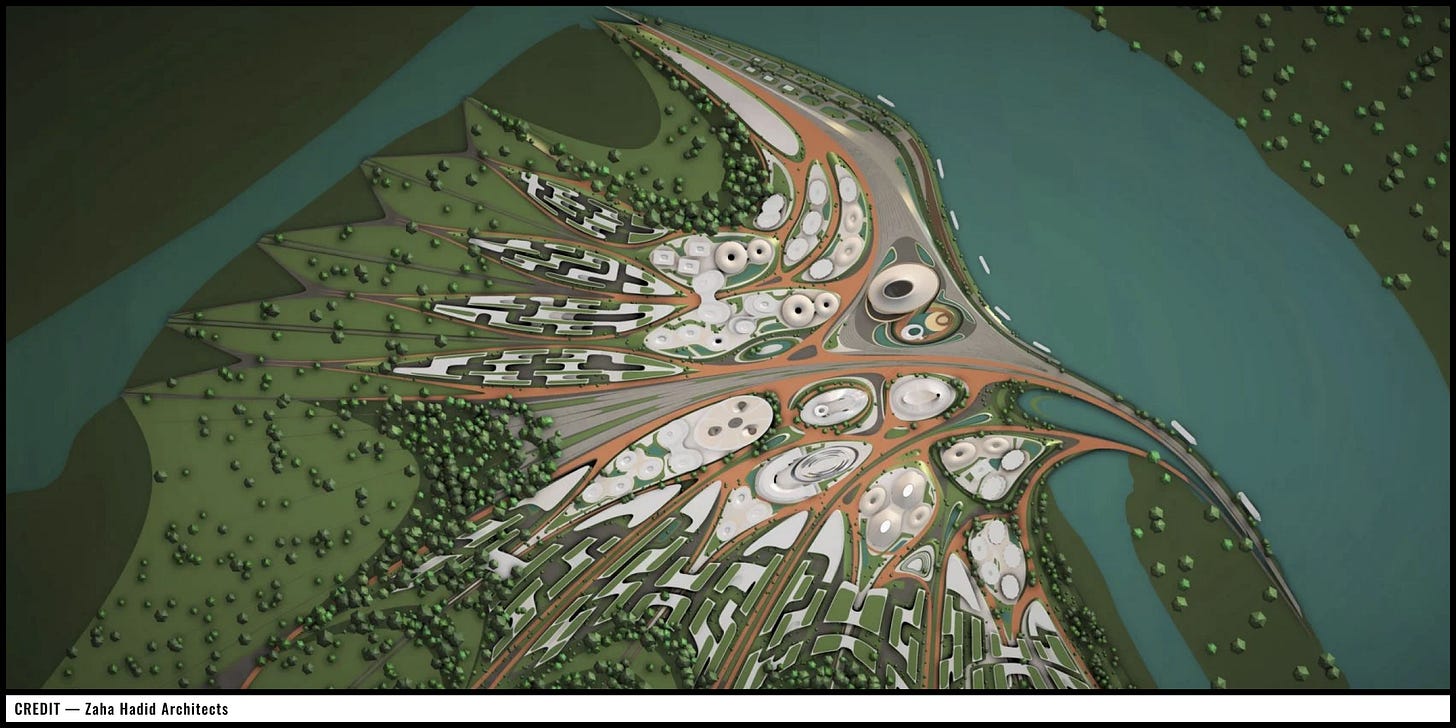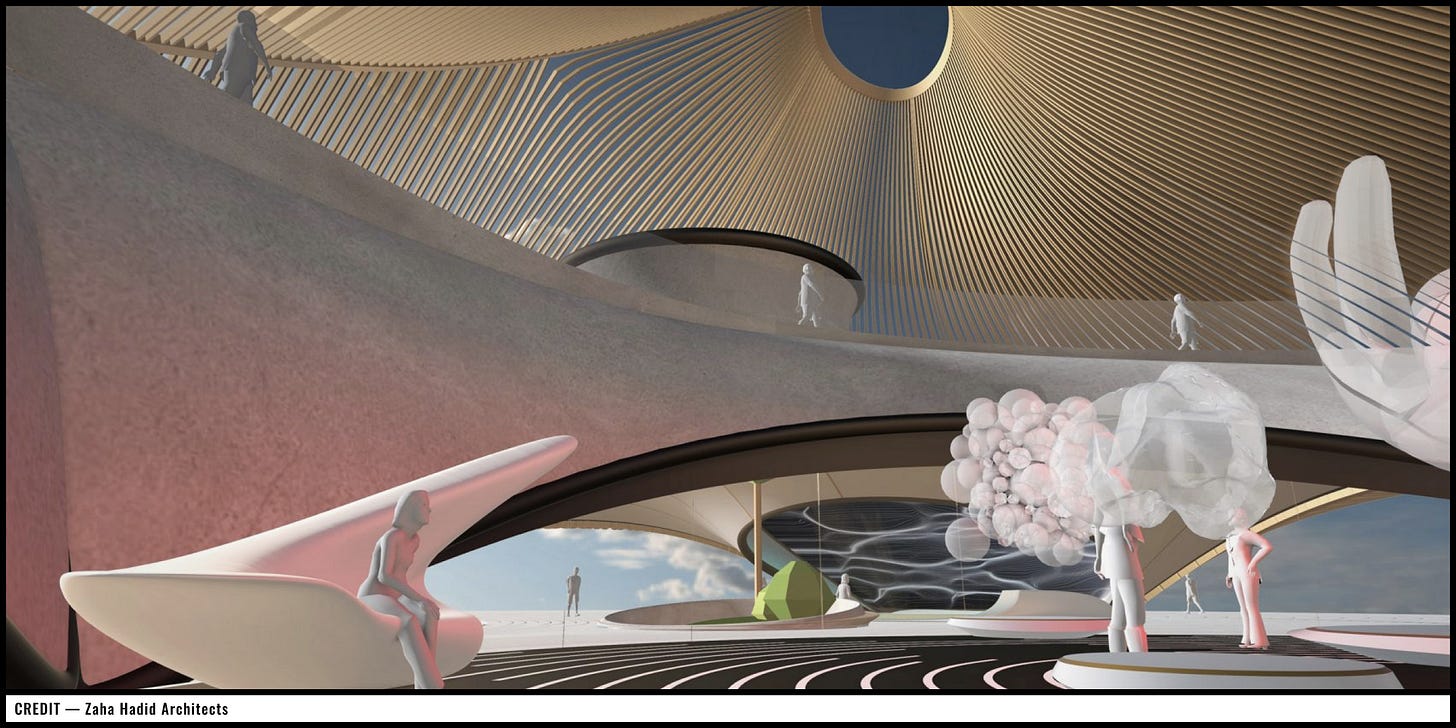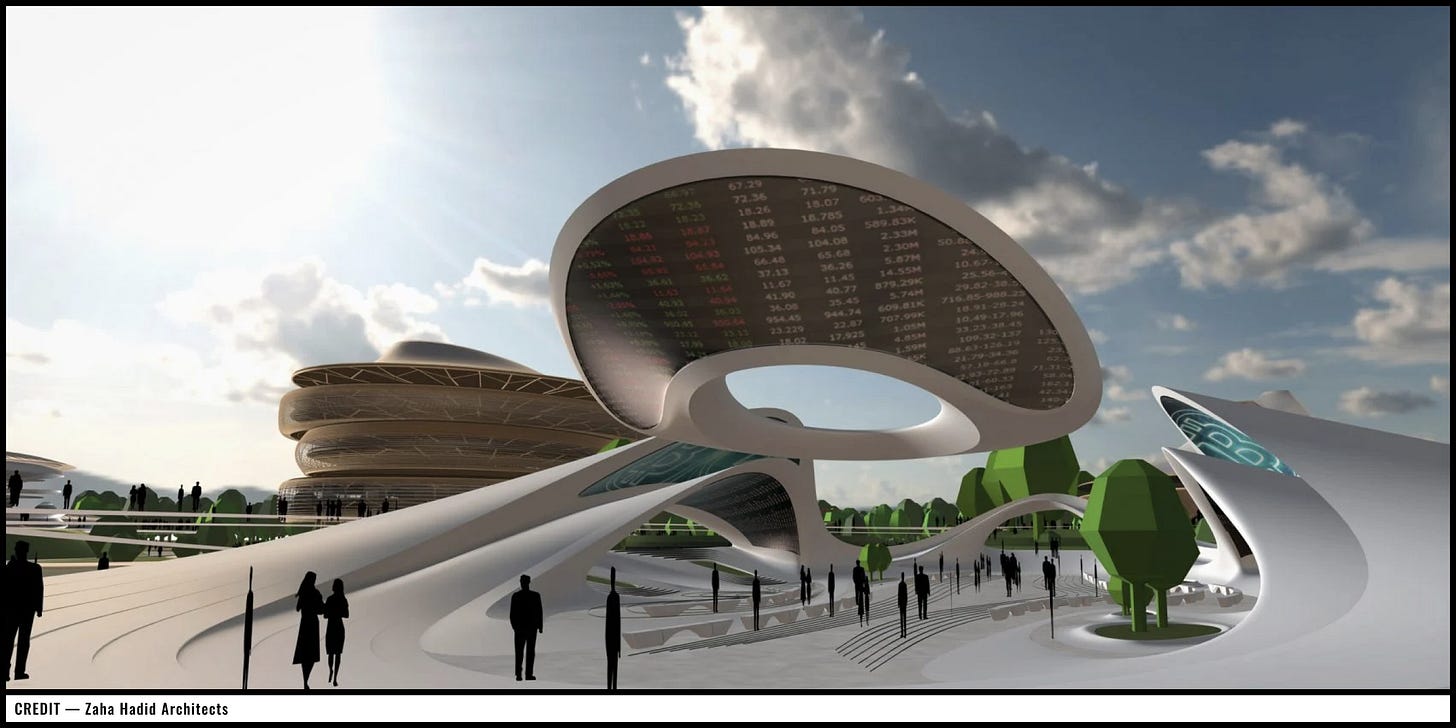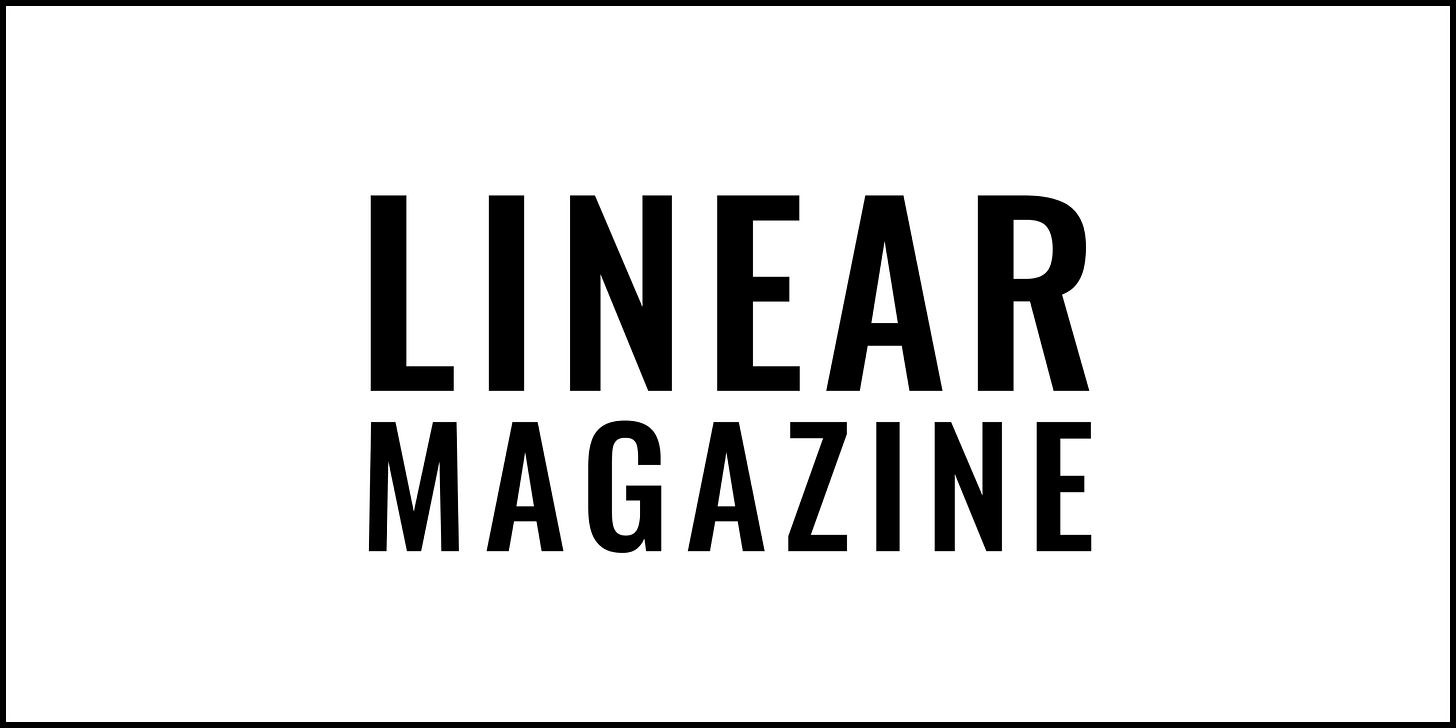A virtual, self-governed city in the metaverse
The project is based on the Free Republic of Liberland, a micronation on disputed land between Croatia and Serbia
If you’re not an architect, you might not yet be familiar with the name Zaha Hadid, the creative mind behind buildings that look more like futuristic space stations or Halo maps than they do actual buildings.
The London-based firm, Zaha Hadid Architects (ZHA), has buildings all over the world, including Saudi Arabia, China, Qatar, and Miami, all featuring their distinct, award-winning styles.
But you won’t find ZHA’s next project in the real world. Instead, it’ll be in the metaverse.
Led by ZHA’s principal architect Patrik Schumacher, and in partnership with a company called Mytaverse, ZHA is building a virtual, self-governed city called the Liberland Metaverse. And while the Metaverse is entirely virtual, Liberland is real.
The project is based on the Free Republic of Liberland, a micronation on disputed land between Croatia and Serbia founded by Czech politician Vít Jedlička. It’s not yet recognized by international authorities like the United Nations, but Jedlička hopes the Metaverse will bring more structure and legitmacy to the country.
"While the Liberland Metaverse is meant to spearhead the development of Liberland as a libertarian micronation it will also function as free standing virtual reality realm in its own right," says Schumacher.
So far ZHA has designed a city hall, a plaza, and a gallery where citizens can browse and buy NFTs. And of course, they’re all designed in ZHA’s signature style: parametricism, a term coined by Schumaker himself in 2008 for the architectural style based on computer technology and algorithms. While it’s only been popularized more recently, parametricism emerged in the mid-1990s and was widely used in computer animation.
You can imagine parametricism like designing buildings with a spreadsheet, using defined rules for different elements and relationships within the design. So, if one piece changes, like the area of the floor, the walls will adapt, and so too will the ceiling, the windows, and so on.
This is especially interesting in the context of the metaverse where the amount of people online at any given time may vary. With parametricism each building will be able to adapt to the appropriate size and design.
Unlike more traditional styles of architecture, a common criticism of parametricism is that it doesn’t often respond to the context or environment of the site. They may look or feel out of place in the real world, but in a virtual world where the environment is designed too, ZHA’s designs can feel right at home.
The best part of designing a virtual world? No urban planning limitations, and of course no defined laws of physics. Some of the structures float by themselves above the ground, while terraced walkways extend around the city hall.
The team hopes the project will grow even more into the go-to place for the web3 community to collaborate and connect with each other. Already, Liberland has over 700,000 applications for citizenship. Citizens will even be able to buy plots of land and set up their own businesses in Metaverse which will give them a physical stake in the real thing.
Existing projects like Meta’s Horizon are purely virtual, but it’s not often you see a metaverse tied to a real place. Schumacher argues it doesn’t have to be one or the other.
"Virtual environments are as real as physical environments and social reality exists and continues seamlessly across this divide.”
Clean Lines is now Linear Magazine ✨
Some exciting news! The Clean Lines newsletter is now Linear Magazine. And, we’re expanding. More of the content you love is coming to social, starting with Twitter and Instagram where you can follow us at @linear_magazine.
Linear’s mission is to create and curate content for what we’re calling the “architecturally curious” — people like you who might not speak the language of an architect, but find the designs we share interesting and inspiring — so if there’s a question you have, a house or building you want to learn more about, or a trend you want us to cover, let us know!
Leave a comment, send us a DM, or email justin@linear-magazine.com 💌



